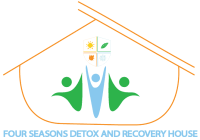Anyone who has struggled with, and recovered from addiction, knows that the first step is admitting that you have an addiction and seeking treatment to begin withdrawal. Usually through a registered rehabilitation center. But the journey to recovery doesn’t end when your rehab treatment is over. The reality is that if you want long-term sobriety, you need to plan ahead for what your life is going to look like after rehab.
Why Preparation for Life After Rehab is Important
Rehab is a critical part of recovering from addiction and, thus, beginning a new phase of your life involving sobriety. In rehab, you have access to all kinds of services, like detox support, individual therapy, group therapy, and a safe environment that’s far away from all of the triggers at home.
But what happens when you’re no longer in that secluded environment and are back to your day-to-day routine? Unfortunately, it’s easy to relapse once you no longer have the stability of rehab getting you through your day. Because of this, you’ll want to spend some time while in rehab planning for your life back home. Fortunately, while in rehab, you’ll likely have a therapist who is helping you create that plan with you.
Strategies for Long-Term Success After Rehab
There are some tried-and-true ways to find long-term success once you leave rehab, and it’s ideal to start planning out these things while you’re still getting your initial treatment. We recommend writing your goals and strategies for success in a journal. This can help you better formulate your thoughts and ideas and even use that written information to hold yourself accountable in the future.
Finding New Hobbies and Interests
We strongly encourage you to look for some hobbies and interests with which to occupy your time. Hobbies and interests bring meaning into our lives and are critical forms of self-care. Most of us have had dreams since childhood of creative pursuits, like dance classes, painting, poetry, baking, etc. Now is the time to consider taking on a new hobby or interest. With that, you can engage throughout the week, bringing you a sense of purpose, meaning, and joy.
Maintaining a Healthy Lifestyle
Another key aspect of recovery is maintaining a healthy lifestyle. During this time, your body is learning how to reestablish homeostasis. Throughout the process, you may find that your mood is less stable than it used to be. You may go through periods of irritability, anxiety, depression, fatigue, digestive problems, etc. Support your body the best you can by finding healthy changes to make in your routine.
Consider taking on a new exercise regimen, changing your diet, exploring massage and saunas, and any other forms of health that can help you feel your best. Make it a point to support your nervous system, which has been through a lot, through self-care practices and addressing any nutritional deficiencies that can interfere with healthy nervous system function.
Mindfulness Practices
Mindfulness can be an incredibly effective means for changing your mindset and health, and many recovering addicts rely on mindfulness practices daily to help manage cravings, negative self-talk, anxiety, and depressive behaviors. A daily meditation or yoga practice can be life-changing, helping you feel more grounded, in control of your life, and clear-minded so that you can make better, healthier decisions.
A lot of people with addiction have an underlying mood disorder, like anxiety or depression. Mindfulness can play a big role in achieving a sense of peace that is capable of combating the symptoms associated with these disorders.
Identifying Your Triggers
You should prepare for the fact that after rehab, you’re likely to encounter certain triggers that give you the urge to start using again. This may be certain places where you used to engage in your addiction or certain people who you used to engage in your addiction with. It may also be certain stressors, like difficulty at work or relationship struggles, that makes you feel like your only outlet is an addictive substance.
Unfortunately, we can’t avoid everything that triggers us in life. But, what we can do is identify our triggers and know when we may be about to be exposed to one. It’s important to come up with a game plan ahead of time for how you’re going to handle each trigger, whether it be avoiding certain ones or engaging in a calming technique that helps you get out of fight-or-flight mode – a mode that makes it all too easy to want to escape into addictive behaviors to find quick relief.
Therapy
During treatment at a rehab center, therapy plays a major role in getting you prepared for the next chapter of your life. But therapy shouldn’t end when rehab is over. We strongly encourage you to continue with therapy, as a licensed therapist can help you stay motivated to maintain sobriety and also can guide you as you encounter different struggles that may come up. Meeting with a therapist each week also helps you maintain a consistent routine and an anchor as you navigate a new era of sobriety.
Setting Long-Term and Short-Term Goals
Another key aspect of recovery is keeping a list of both long-term and short-term goals. This is how you can hold yourself accountable, even when things get tough. These goals can range from “find a new job” to “maintain sobriety for 90 days straight.” As you check off each goal you’ve accomplished, you’ll feel a sense of achievement and feel validated in your choice to stay sober.
Life After Rehab: Long-Term Recovery is Possible!
At the end of the day, life after rehab involves good days and bad days. Still, by coming up with a plan and using the tips above, you’ll be able to ensure long-term success better as you navigate life. Our team of addiction specialists can help you get started in developing both short-term and long-term goals.



